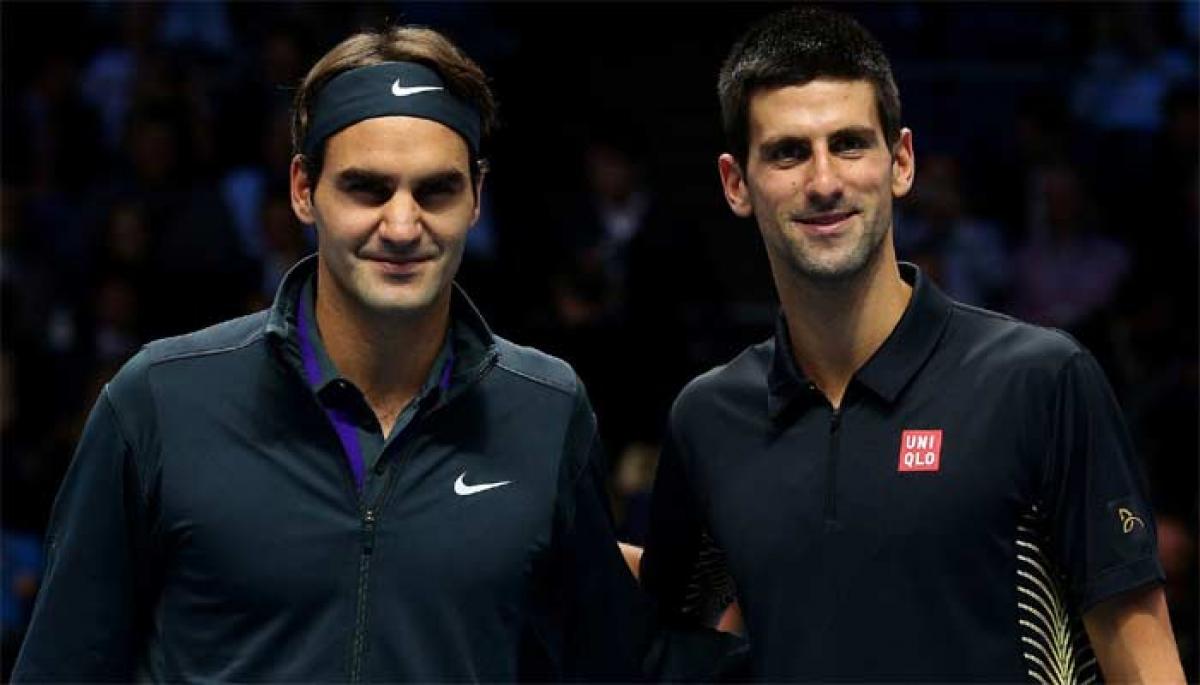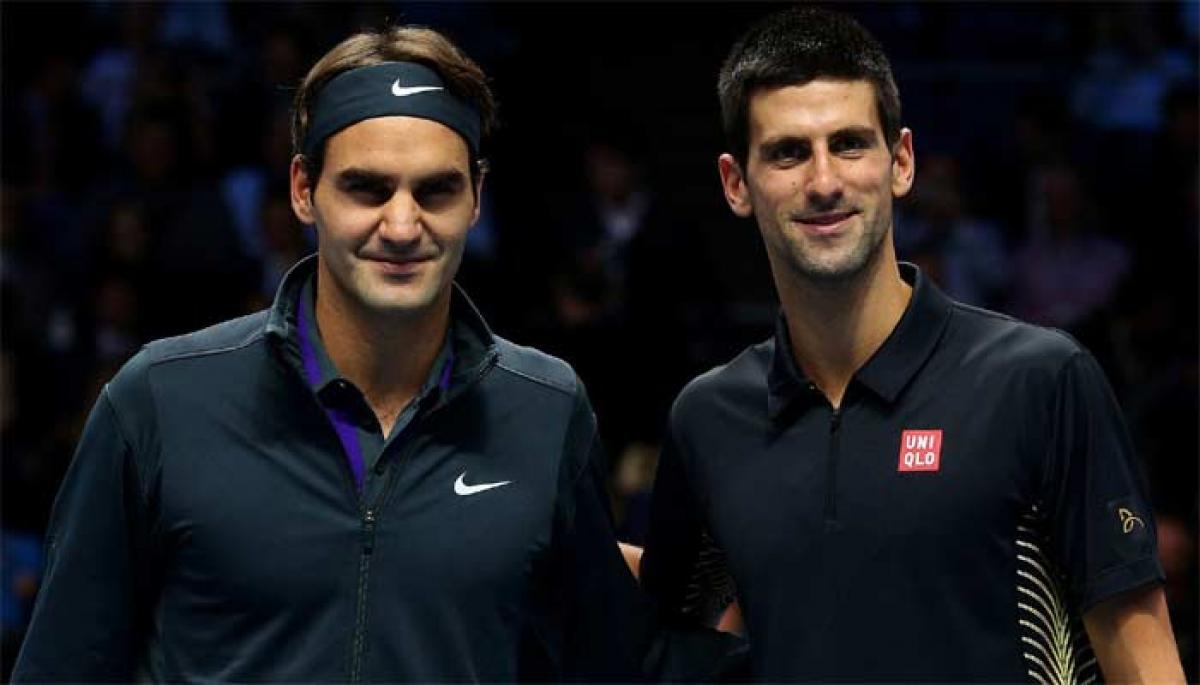Live
- Law and order has declined: Naveen
- 141 villages affected by flood in Balasore
- DC’s Playful Slush Dive Wins Hearts of Bantwal Youth
- 400 mobile phones handed over to owners
- Customs, Central GST staff donate to flood relief fund
- FMS Dental launches Neuromuscular Dentistry specialty
- MLA assures pensions to the eligible
- Himanshi Parashar opens up on not being comfortable with shooting intimate scenes
- Becoming producer at 21 to win an Oscar
- Dr Aruna Kalra shines light on female foeticide and gender bias in her book ‘I Want a Boy’
Just In

Champ Djoker no match for Federer’s charisma. Prior to the US Open men’s final, a new statistical analysis by fivethirtyeight.com stated that Novak Djokovic’s career peak (reached in May) is higher than that of any other male tennis player since the 1970s.
Prior to the US Open men’s final, a new statistical analysis by fivethirtyeight.com stated that Novak Djokovic’s career peak (reached in May) is higher than that of any other male tennis player since the 1970s.

That’s higher than Roger Federer; higher than Rafael Nadal; than Pete Sampras and Andre Agassi and more than Bjorn Borg and John McEnroe (take a moment and think about this).
Yet, despite winning nine Grand Slams since the start of 2011 – more than any other male tennis player - the affection of fans has remained tantalisingly out of Djokovic’s reach. He seems to be at best the fan’s second choice, appreciated for his tennis but not loved and cherished like Federer or Nadal. Or Sampras and Agassi before them.
Djokovic reached all four Grand Slam finals in 2015, winning three of them. If it wasn’t for a Stan Wawrinka masterpiece in the French Open final, Djokovic could have had all four trophies sitting on his mantelpiece at home.
But at the US Open, all the talk (on the men’s side at least) was about Federer’s new Sneak Attack and how he hasn’t lost a set since the Wimbledon final. Djokovic’s brilliant tennis, his quest to win three Slams in the same year for a second time, wasn’t even an afterthought.
The sound at Arthur Ashe stadium reached stratospheric levels every time Federer had a breakpoint. In the fourth set, when Federer fought back from 2-5 to 4-5, it felt like Djokovic was playing two opponents and it sounded like everyone in New York was cheering for Federer, who at 34 continues to astound us with the quality of his tennis.
In part, this isn’t Djokovic’s fault. He is a nice guy with a great sense of humour. He’s also gracious, as he showed at the presentation ceremony by congratulating Federer and calling him “probably the greatest player in history.”
It’s just that he came along at a time when the tennis world was already divided between Federer and Nadal, two all-time greats. It helped that Federer and Nadal provided the perfect contrast.
They divided fans as much for aesthetic reasons as anything else. One was right-handed, the other left-handed. In one corner are those who swoon at the way Federer glides across the court like a butterfly.
In the other, the muscularity of Nadal stalking his territory at the baseline like a mountain gorilla holds sway. Both men are also clearly identified with a specific Grand Slam.
Nadal is the king of clay, having won the French Open a record nine times. Federer used to reign on grass, having won Wimbledon a record seven times. It helped that the Grand Slams followed each other, lending more weight to the feeling that they were tennis’ yin and yang.
On four occasions – and three in a row - after Nadal won the French Open, Federer won Wimbledon. These sharp lines make it easy for fans to stake their positions. Djokovic offers us no such conveniences. His game is similar to Federer’s but not as pleasing to watch.
On the basis of beauty, rooting for Federer over Djokovic is easy. And while Djokovic covers the court as well as Nadal does, he lacks the aura of Nadal, who seemed invincible in his prime, especially on clay.
It’s hard to link Djokovic win any one of the four Grand Slams either. He’s won the Australian Open five times now, a record, but it doesn’t have the gravitas of the French or Wimbledon. Five is also a smaller number than seven and nine.
What Djokovic offers us is the complete package, a player almost equally at home on any surface. He backs it up with an iron will that is the equal of Federer and Nadal. But because nothing stands out and grabs our attention, he doesn’t command our emotions.
In tennis terms, he is the equivalent of Ivan Lendl – a relentless competitor who grinds down his opponents (Djokovic’s personality is the opposite of Lendl’s dourness though).
Djokovic’s 10 Grand Slams put him eighth on the all-time list and he doesn’t seem to be done yet. With Federer and Nadal past their primes, it’s hard to see who will challenge him over the next few years. He should, barring injury, move further up that list.
Perhaps in time we will come to embrace him wholeheartedly but for now he can console himself with the thought that he has the respect and admiration of his peers. “Always tough playing one another,” Federer said after losing the final.
“Walk away from it knowing more about our games and more about ourselves, really.” That’s not a bad consolation prize, you know, in addition to all the trophies in his cabinet.

© 2024 Hyderabad Media House Limited/The Hans India. All rights reserved. Powered by hocalwire.com







